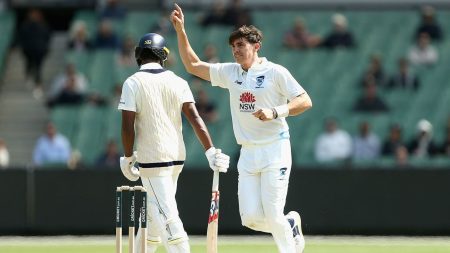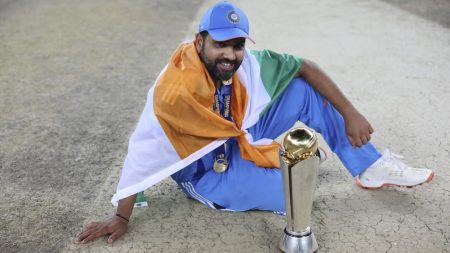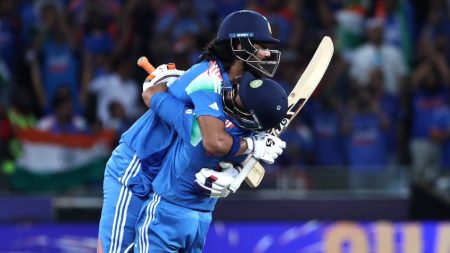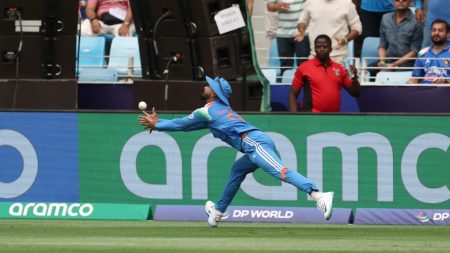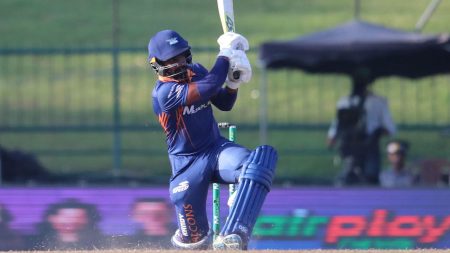A Spectacular Cricketing Feat or a Questionable Decision?
The cricket world is buzzing over the recent allegations against Dasun Shanaka, Sri Lanka’s talented all-rounder. Sri Lanka Cricket (SLC) has announced that it will conduct an inquiry on allegations that Shanaka left a first-class match in Colombo halfway through to play for the Dubai Capitals in the UAE on the same evening, February 2. The chargesheet against Shanaka includes a serious allegation that the first-class match referee, Wendell Labrooy, was led to believe Shanaka had a whic concussion,h would have justified a substitute being approved. SLC CEO Ashley de Silva confirmed that SSC, Shanaka’s first-class club, might also be conducting its own inquiry. This situation has sparked a heated debate about the integrity and professionalism of international cricket, especially in the age of T20 leagues where players juggle multiple commitments.
Shanaka’s Side of the Story
Shanaka, however, disputes the accusations. He told ESPNcricinfo that both SLC and the SSC were aware of his need to leave the match early. Shanaka explained that he had been dismissed on the third morning of the three-day match and shortly after, visited a nearby hospital to get a blow to his neck examined, which he had sustained while playing a sweep shot. A separate physiotherapist cleared him to play, and he promptly left for Dubai to participate in the evening’s T20 match for the Dubai Capitals. "SLC and the club knew I had to leave," Shanaka said. "I only returned to play this first-class match because SSC requested it to avoid relegation. But my other team needed me back, as I had helped them win two games earlier in the tournament."
The Context of the First-Class Match
The match in question was a crucial one for SSC, who were struggling to avoid relegation in the Major League Tournament. Shanaka, along with two other players, had been called back from the International League T20 (ILT20) to bolster the SSC squad. Shanaka played the first two days of the three-dayer, contributing significantly with both bat and ball. He bowled 21 overs and took a wicket during Moors’ innings and finished the second day on 39 not out. On the third day, before leaving, Shanaka showcased his batting prowess by slamming 84 more runs, bringing his total to 123 off 87 balls, with 88 of those runs coming from boundaries. Although SSC’s innings concluded shortly after his dismissal, Shanaka did not participate in the next Moors innings, which was the third of the match. This sequence of events has raised questions about the timing and reasons for his departure.
The Rapid Transition to the ILT20
Several hours after leaving the first-class match, Shanaka appeared for the Dubai Capitals in Abu Dhabi, playing a crucial role as a middle-order batsman. He scored 34 runs off 12 balls at No. 5, helping his team post a formidable total of 217 against the Abu Dhabi Knight Riders. Despite his brief appearance, his performance was impactful, and he did not bowl in the Knight Riders’ innings. The Capitals would go on to win the ILT20, with Shanaka contributing in three further games. This rapid transition from a domestic match to an international T20 league has added to the controversy, making it a significant point of discussion among cricket enthusiasts and officials alike.
The Precedent Set by Lasith Malinga
Ashley de Silva, the SLC CEO, drew a comparison with a similar incident involving Lasith Malinga. Malinga famously played a match for the Mumbai Indians in the T20 league and then broke records in a domestic match in Pallekele the very next day. However, the key difference is that Malinga did not leave a match prematurely; he played until both matches reached their conclusion. De Silva emphasized that leaving a first-class match early, especially with questionable reasons, is a serious issue. The board is concerned about the potential impact on the integrity of the game and the trust between players, clubs, and governing bodies. While Shanaka’s ability to switch between formats and perform at a high level is commendable, the circumstances under which he left the match in Colombo are being scrutinized closely.
The Broader Implications
This incident has broader implications for the management of players’ commitments in the modern cricket landscape. T20 leagues have become a significant part of the sport, offering lucrative contracts and the opportunity to play alongside and against top international stars. However, the demands of these leagues often clash with traditional formats, such as Test and first-class cricket. The SLC’s decision to investigate the matter reflects the growing tension between the need to support players’ careers and the need to maintain the integrity of domestic cricket. The outcome of this inquiry will not only affect Shanaka’s standing but could also set a precedent for how similar situations are handled in the future. For now, the cricket community awaits the findings of the investigation, hoping for a fair and transparent resolution.


